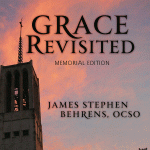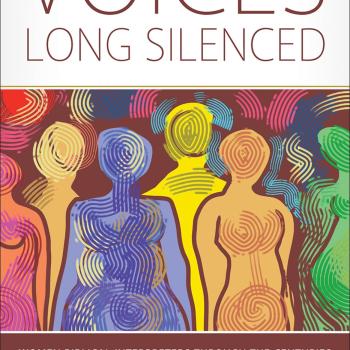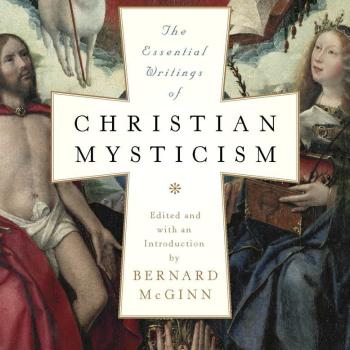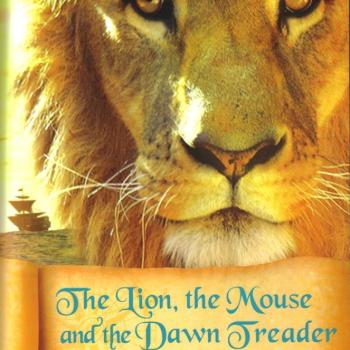Here’s a list of books published in the last eighteen months on a variety of contemplative themes. Most of these books are anchored in the Christian tradition, although several have a strong inter-spiritual themes as well. Their theologies and approach to spirituality vary, as one might expect from any collection of twenty interesting and thoughtful books. But what they all have in common is a recognition that contemplative prayer and mystical spirituality matter. I am confident that there is something for everyone on this list. Do your Christmas shopping here, even if the only “elf” you are buying for is yourself.
This list comes with two disclaimers. First: I am the author of two of these books. Yes, I know that’s blatant self-promotion, but I also sincerely believe that anyone who would be interested in all the other books on this list will be interested in mine — I hope you’ll agree. Disclaimer #2: These books are linked to Amazon; if you follow the links and make a purchase there, I receive a small commission. Thank you for doing so — it’s the easiest way you can support my writing ministry.
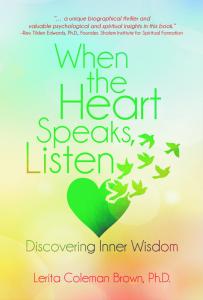
Lerita Coleman Brown, When Your Heart Speaks, Listen: Discovering Inner Wisdom — one of the my favorite books of 2019, this is a powerful story of the author’s heart transplant she received while in her 40s — and the spiritual lessons that both her old and new hearts taught her. Written as a conversation Lerita held with both of her hearts, her candid and vulnerable description of her own spiritual journey is both inspiring and enlightening. Each chapter ends with questions and prompts you can use for when you speak — and listen — to your own heart.
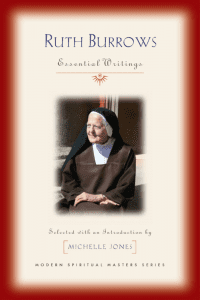
Ruth Burrows, Essential Writings — Ruth Burrows wrote a modern-day classic of Christian mysticism, Guidelines for Mystical Prayer, which is currently out of print in North America. But this book offers an in-depth survey of her best writings from throughout her career. As a Carmelite sister, Burrows approaches the spiritual life from the same tradition that gave us Saints Teresa of Ávila, John of the Cross, Thérèse of Lisieux, and Edith Stein. Arranged around the core idea that the spiritual life is a gift, this anthology shows how Carmelite spirituality remains vibrant in our generation.
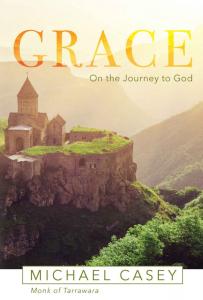
Michael Casey, Grace on the Journey to God — This Trappist monk from Australia is not nearly as well known as other Cistercians like Thomas Keating or Basil Pennington, but I think he deserves to be — his writing is deeply contemplative, grounded in the Christian tradition but never hidebound or rigid. He has a clear sense of spirituality as a relationship and contemplation as a gentle process of humble simplification. This book explores the central role that grace plays in every step of the spiritual journey.
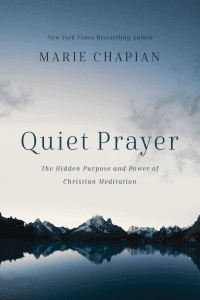
Marie Chapian, Quiet Prayer: The Hidden Purpose and Power of Christian Meditation — so many contemplative Christian writers are anchored in the Orthodox, Catholic, or liberal Protestant traditions, that it’s always exciting for me to discover evangelical Christians who embrace the contemplative way. Chapian combines her own journey of learning Centering Prayer with the voice and theology of evangelical spirituality to articulate an approach to contemplation that is heartfelt, relational, grounded in scripture, and deeply attentive.
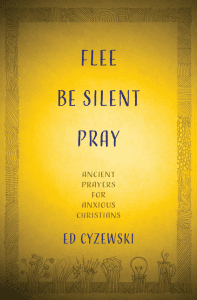
Ed Cyzewski, Flee, Be Silent, Pray: Ancient Prayers for Anxious Christians — another evangelical contemplative, Cyzewski acknowledges that his contemplative journey took him from a place deeply critical of Catholic spirituality to eventually acknowledging the rich treasures of silent prayer that has been handed down in monasteries over the centuries. Building on Henri Nouwen’s interpretation of the wisdom of the desert fathers and mothers, this book offers an antidote to any kind of spiritual anxiety — no matter what label you do (or don’t) wear.
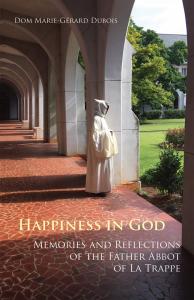
Dom Marie-Gerard Dubois, Happiness in God: Memories and Reflections of the Father Abbot of La Trappe — this collection of fifteen sermons and talks given by a French monk — the Abbot of the monastery of La Trappe, from which “Trappist monks” get their name — explores how monastic spirituality has evolved during the years following the Vatican II Council of the Catholic Church. The author was a contemporary of Merton’s, and offers insight into the spirituality and practice of a monastic way of life that stresses simplicity and austerity — but also contemplation.
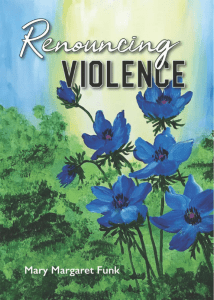
Mary Margaret Funk, Renouncing Violence — Sr. Meg is a Benedictine nun, well-known as a leader in interreligious dialogue but also in the recovery of traditional Christian contemplative spirituality. Her books explore topics from deep within monastic history, including mindfulness, humility, and discernment. In this book, written as a meditative response to the anger and violence of our time, the author considers another key monastic practice — renunciation — and explores how it can help those of us seeking a better way than the rancor and bitterness that is epidemic in today’s world.
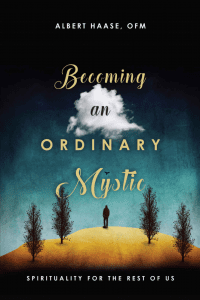
Albert Haase, Becoming an Ordinary Mystic: Spirituality for the Rest of Us — Haase, a Franciscan friar, offers insights into how everyone is called to be a mystic — or, as his mother described it, “a special friend of God.” By emphasizing the ordinariness of the spiritual life — where each person simply is called to respond to the grace that we find in our own life circumstances — Haase makes mystical spirituality accessible and inviting. Each chapter includes exercises so that reading this book is not just a head trip, but a meaningful invitation into the mystical life.
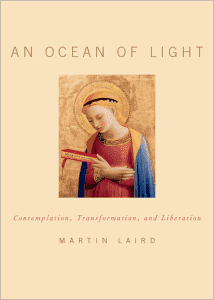
Martin Laird, An Ocean of Light: Contemplation, Transformation and Liberation — Each of Martin Laird’s three books on contemplative prayer and practice is worth reading, but what makes this book unique is his thoughtful commentary on how contemplation helps us to grow, psychologically as well as spiritually. His lyrical and poetic writing invites the reader to explore the transition from reactivity to responsiveness to the “ocean of light” — the mature life of a mind luminous with the fruit of a deep contemplative practice. Read this wisdom, and you will be inspired to take your prayer deeper and higher.
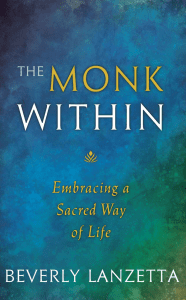
Beverly Lanzetta, The Monk Within: Embracing a Sacred Way of Life — theologian Beverly Lanzetta has written numerous books on topics such as spiritual direction, feminist mysticism, and the spirituality of divine union. Here she unpacks what may be one of the most exciting themes of our time: the “monk within,” recognizing that everyone has a monastic dimension, even those of us who are not called to live in a cloister. Drawing on a variety of sources and emphasizing both feminine wisdom and the centrality of love, Lanzetta charts a contemplative path appropriate for all seekers.
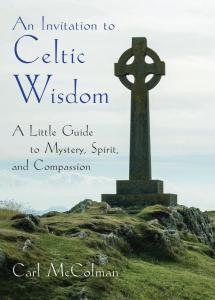
Carl McColman, An Invitation to Celtic Wisdom: A Little Guide to Mystery, Spirit, and Compassion — Celtic spirituality is more than just a celebration of Irish and Scottish saints, stories, and poetry. It’s actually a unique expression of early Christian contemplation, heavily influenced by the desert mothers and fathers, the early monastics, but also the indigenous pre-Christian spirituality of the Celtic lands. You don’t have to be a Celt to appreciate Celtic wisdom — it’s for anyone seeking a more earthy mysticism for our time.
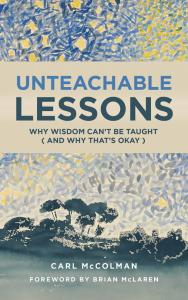
Carl McColman, Unteachable Lessons: Why Wisdom Can’t Be Taught (And Why That’s Okay) —I know it sounds paradoxical, but this is a book about how you can’t learn spirituality from a book! We read spiritual writing for inspiration and encouragement, and this book tries to do just that, by looking at universal themes such as compassion, silence, prayer, embodiment, trust, and vocation — and reflecting on how, for each of us, the best way to learn our “unteachable lessons” is to embrace a life of mindful attentiveness, thereby letting the Spirit be our first, and main, teacher and guide.
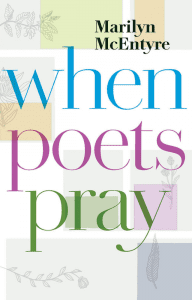
Marilyn McEntyre, When Poets Pray — Anyone who has read Mary Oliver — or the Psalms — understands that there is a deep link between poetry and prayer. McEntyre, who teaches literature but also writes about the spiritual life, is an eloquent guide to exploring the poetics of prayer (and the prayerfulness of poetry). She draws on some of the great poets of the past 1100 years, from Hildegard of Bingen to Wendell Berry to Denise Levertov, to illustrate her contemplative reflections (and yes, both a Psalm and a poem from Mary Oliver are included!).
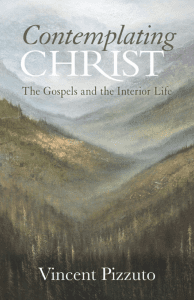
Vincent Pizzuto, Contemplating Christ: The Gospels and the Interior Life — the author, a priest and theologian, begins this book by saying “The incarnation has made mystics of us all. What if we read the gospels as if that were true? This book is an attempt to do just that.” With beautiful prose and a keen insight into both scriptural wisdom and contemplative practice, Pizzuto demonstrates how deification — the invitation to realize our essential oneness with God — is both Biblically grounded and central to the contemplative experience.
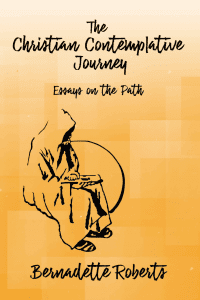
Bernadette Roberts, The Christian Contemplative Journey: Essays on the Path — Bernadette Roberts (who died in 2017) was one of the most respected spiritual teachers of her generation, exploring nondual spirituality from a perspective at once deeply Christian and deeply resonant with other wisdom traditions. This book collects together a variety of her essays, on topics ranging from the Eucharist, to the Resurrection, to mystical theology and both true and false understandings of the self. It’s an accessible introduction to one of the most philosophical contemplatives of our time.
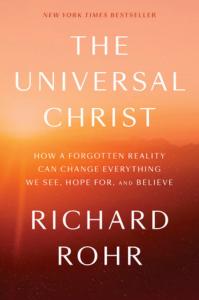
Richard Rohr, The Universal Christ: How a Forgotten Reality Can Change Everything We See, Hope For, and Believe — Given how popular Rohr is, I suppose most people reading this post already have read this book, but in case you are one of the few who haven’t, it deserves your attention. Rohr rightly sees that rethinking our theology of Christ can bring much needed healing not only to the Christian community, but also to how Christianity interacts with the world at large.
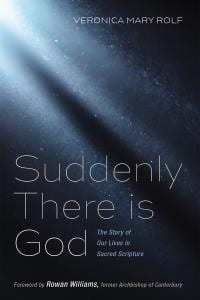
Veronica Mary Rolf, Suddenly There is God: The Story of Our Lives in Sacred Scripture — Rolf is known for her perceptive books on Julian of Norwich; here, she turns her insight onto the Bible and the role that the myths and stories of scripture can play in our personal spiritual journeys. She invites readers to engage with the Biblical text like a mirror for our lives today, finding in the overall narrative signs and symbols that can illuminate the dynamics of how God leads and guides us as individuals.
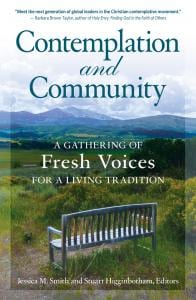
Jessica M. Smith and Stuart Higginbotham, editors, Contemplation and Community: A Gathering of Fresh Voices for a Living Tradition — an insightful collection of essays by a group of young contemplatives who met with Richard Rohr, Thomas Keating, and other contemplative elders in 2016. If you want to get a sense of the future of contemplative spirituality, read this book. It’s inspiring and at times challenging, but most of all it’s filled with hope.
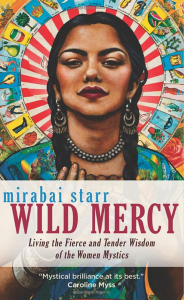
Mirabai Starr, Wild Mercy: Living the Fierce and Tender Wisdom of the Women Mystics — Mirabai is one of leading spokespersons for interspirituality: the inclusive, egalitarian celebration of all spiritual and contemplative traditions. Her love for the Christian mystics led her to publish a series of artful translations of classics by Julian of Norwich and Teresa of Ávila. In Wild Mercy she focuses on the teachings of women mystics and sages from the world over, distilling their many strands of insight into a singular proclamation of universal spiritual wisdom.
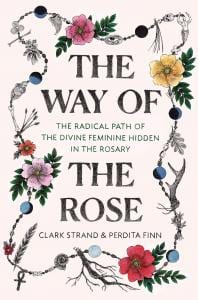
Clark Strand and Perdita Finn, The Way of the Rose: The Radical Path of the Divine Feminine Hidden in the Rosary —The Rosary is one of the most beloved of Christian devotions, but many people are unaware of just how deeply contemplative a practice it is (or can be). This book approaches its topic from an interspiritual perspective, celebrating the mystical dimension of this ancient devotional practice while also exploring how it functions as an invitation into the feminine dimension of contemplation.
Enjoy reading this blog?
Click here to become a patron.



